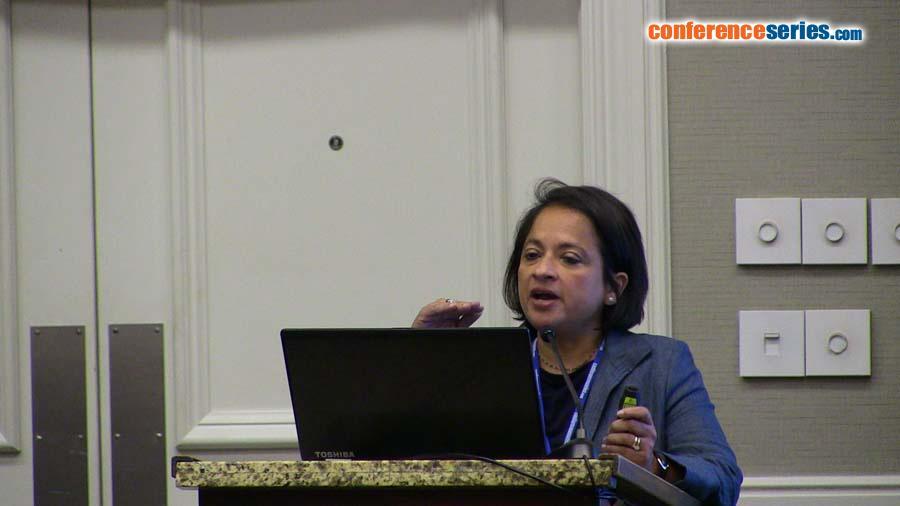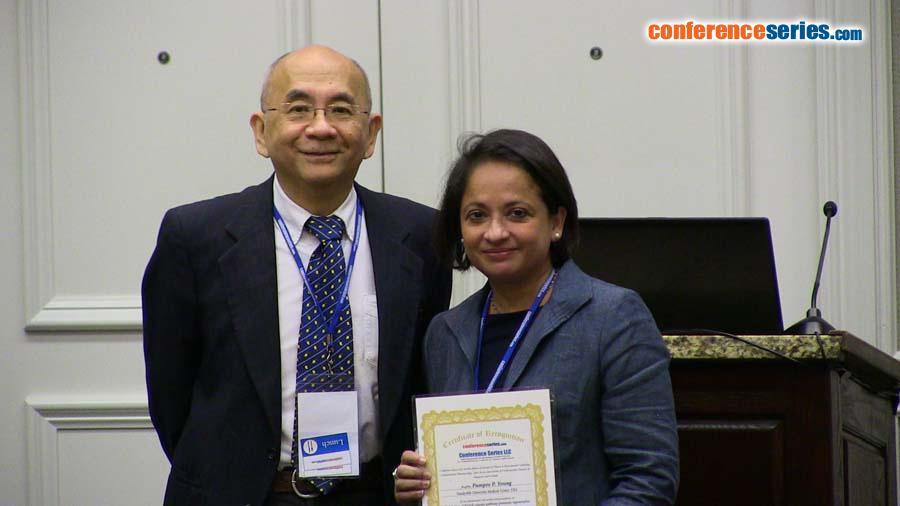
Pampee P. Young
Vanderbilt University School of Medicine,USA
Title: Inhibition of Wnt/β-catenin pathway promotes regenerative cardiac repair following myocardial infarct
Biography
Biography: Pampee P. Young
Abstract
The Wnt/β-catenin pathway is temporarily activated in the heart following myocardial infarct. The effect of therapeutic inhibition of Wnt pathway on post injury outcome are unknown. Using a newly available, small molecule, GNF6231, which averts Wnt pathway activation by inhibiting Wnt secretion, we sought to investigate whether therapeutic inhibition of the Wnt pathway temporarily after infarct can mitigate post injury cardiac dysfunction and fibrosis, hence reconciling discordant observations from genetic studies. Pharmacologic inhibition of the Wnt pathway by GNF-6231 significantly reduced the decline in cardiac function (∆Fractional Shortening%: 1.4±2.312 in GNF-6231 treated vs. -1.713±3.59 in vehicle-treated), prevented adverse cardiac remodeling, and reduced infarct size (9.07±3.98% vs. 17.18±4.97%). Histologically, Wnt inhibition augmented proliferation of interstitial cells, particularly in the distal myocardium, inhibited cell death, including apoptosis of cardiomyocytes, and reduced myofibroblast proliferation in the peri-infarct region. In vitro studies showed that Wnt inhibition increased proliferation of Sca1+ cardiac progenitors, improved survival of cardiomyocytes, and inhibited collagen I synthesis by cardiac myofibroblasts. Systemic, temporary pharmacologic inhibition of the Wnt pathway following MI resulted in improved function, reduced adverse remodeling and reduced infarct size in mice. Therapeutic Wnt inhibition affected multiple aspects of infarct repair: it promoted proliferation of cardiac progenitors and other interstitial cells, inhibited myofibroblast proliferation, improved cardiomyocyte survival, and reduced collagen I synthesis by myofibroblasts. Our data point to a promising role for Wnt inhibitory therapeutics as a new class of drugs to drive post MI repair and prevent heart failure.



